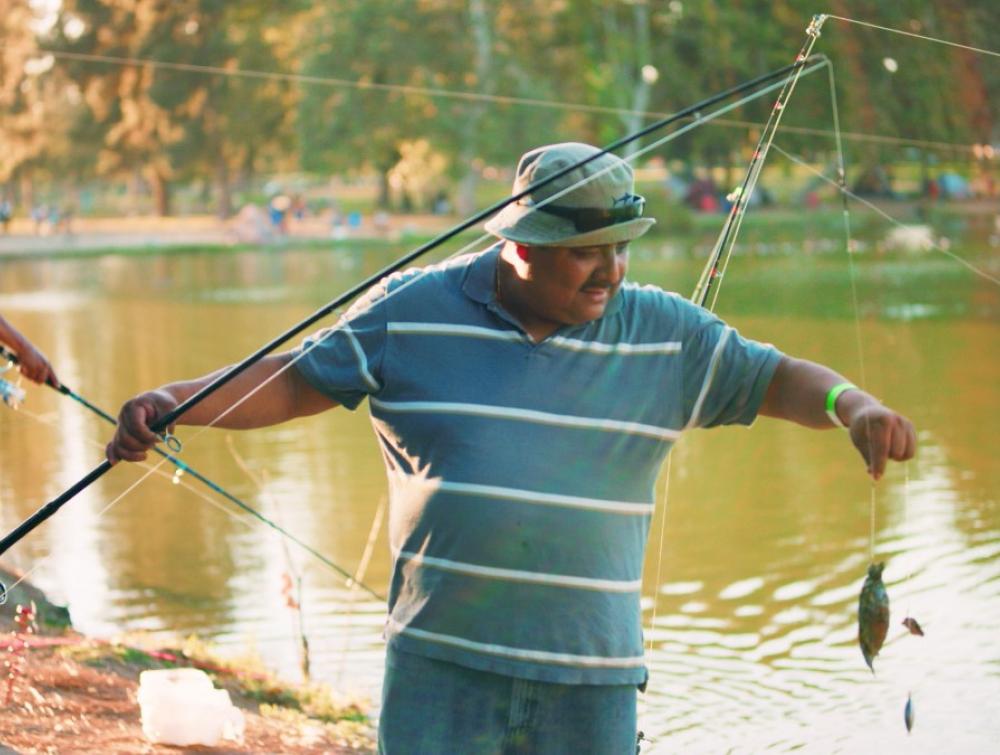Equitable access to local parks gets a boost in new bipartisan House bill

Local parks provide opportunities for outdoor experiences - from walking paths to fishing.
Lorenzo Sandoval, Guppies Fishing Adventures
Newly-introduced legislation proposes a one-time, $500 million investment in local parks and prioritizes funding for underserved communities
Author: Melissa Diamond
Rep. Nanette Barragán (D-CA) Rep. Michael Turner (R-OH), and Rep. Neguse (D-CO) have introduced the bipartisan Parks, Jobs, and Equity Act (PJEA) in the U.S. House of Representatives to create a $500 million grant program that would help cities invest in local parks and support an equitable economic recovery. The Parks, Jobs, and Equity Act prioritizes grants providing opportunities for job creation and youth engagement in low-income neighborhoods that lack parks within a half-mile.
The COVID-19 pandemic has underscored the value of local parks, as critical resources for fresh air, healthy exercise, and stress relief during a global health crisis. The pandemic has also highlighted historic inequities in access to nature and the health benefits of outdoor activity. Currently, one-in-three people across the United States, including 28 million children, do not live within a half-mile of a quality park. Budget cuts at many parks and recreation agencies during the last year threaten to make the problem even worse.
Communities that lack parks not only lose immediate health benefits, but they also miss out on the significant economic development and job creation that local parks can provide. The Parks, Jobs, and Equity Act would create over 500 new parks and 8,000 new jobs in these communities. The bill would also add $1.37 billion to local economies across the country, demonstrating how investing in parks can help revitalize the national economy in the wake of the pandemic.
“Access to nature is a human right, yet parks and green space are not equitably distributed. In some areas, parks can be downright unwelcoming and exclusionary. Unfortunately, the COVID-19 pandemic has amplified the need and underscored longstanding inequities, particularly for Black and Brown communities. By investing in local parks, we can work toward a common goal to ensure that all people - no matter their race, zip-code, or income level - have access to nature and all of its benefits,” said Tara Brown, Senior Government Relations Representative at The Wilderness Society. “We thank Representatives Barragán, Turner, and Neguse for their leadership and advocacy to include local parks as a part of the solution - making access to the outdoors more equitable and helping to bring economic recovery within reach.”
CONTACT:
- Tara Brown, Senior Government Relations Representative, The Wilderness Society, (202) 429-2647, tara_brown@tws.org
The Wilderness Society, founded in 1935, is the leading conservation organization working to protect wilderness and inspire Americans to care for our wild places. With more than one million members and supporters, The Wilderness Society has led the effort to permanently protect 109 million acres of wilderness and to ensure sound management of our shared national lands. www.wilderness.org
